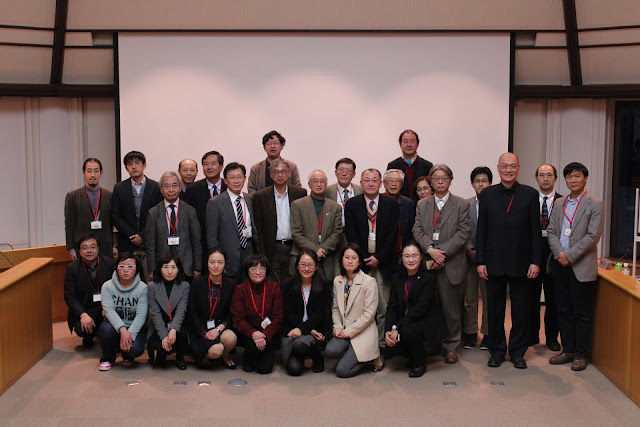UCSC seminar–part 5
The fifth set of readings includes Alexander Woodside's Lost Modernities and the first two parts of Benjamin Elman's Civil Examinations and Meritocracy in Late Imperial China.
Let us focus on rational bureaucracy as a form of modernity and how its institution–civil service examination system–endured for more than seven hundred years. As Richard von Glahn has shown, the rise of market economy was coupled with transformation of social and political elites from aristocrats to "literati" during the Tang-Song transition. Literati then thrived on the expansion of civil services until 1850. How does Elman account for its history?
Woodside, on the other hand, describes the rise of postfeudal professional bureaucrats in China, Korea and Vietnam as alternative modernities. These modernities then were lost in narratives of world history. What does he mean by that?
Let us focus on rational bureaucracy as a form of modernity and how its institution–civil service examination system–endured for more than seven hundred years. As Richard von Glahn has shown, the rise of market economy was coupled with transformation of social and political elites from aristocrats to "literati" during the Tang-Song transition. Literati then thrived on the expansion of civil services until 1850. How does Elman account for its history?
Woodside, on the other hand, describes the rise of postfeudal professional bureaucrats in China, Korea and Vietnam as alternative modernities. These modernities then were lost in narratives of world history. What does he mean by that?

A few weeks ago, our class discussed the reason that held China together considering its size. Instead of a divided realm based on provincial and regional loyalty, we wondered what was the glue that kept the Empire and China intact. Elman’s explanations of the Imperial Civil Examination appear as a clear answer. The alliance between the upper echelon elites and the state was cemented by the civil examination system, which in turn was controlled by the imperial state but open to reforms and needs. Elman shows that the civil examination system undergone reforms for appeasing the elites, but also as a mechanism to control the classically educated literati who were potentially rebellious. Change in curriculum or required texts increased the difficulty of the test. The allocation of quota on provincial graduates was a tool by the imperial state to balance different regional interests.
ReplyDeleteIf one must criticize Elman’s work and the civil service examination system, that it would be on the questions of alternatives careers and exam failures. It appears to Elman that classically trained literati would keep on taking the test, but it seems unreasonable to us the modern readers. Why would one continue to take an exam when the expenses were high, and the probability of success impossibly low? I want to know more about the alternative careers of provincial graduates and licentiates. For example, did they become government clerks or official’s private councilor or staffs? Elman employed examples of several elders who kept on taking the exam, but I want to question the representativeness of these stories that were often recorded because of their rarity.
At the very last section of his book, he discusses the decoupling and delegitimizing of the Qing state due to alternative paths that lead to officialdom. The existence of alternative forms to success independent of the civil examination system, along with the Qing state’s abandonment of Confucian classic, sealed its fate by losing the cultural elite’s support to the state. Using Elman’s narrative on the value of the civil examination, one could evaluate the utility of the system itself other than treating the civil examination system as a voluntary culture “prison”. Was China held together due to the monopolized form of acceptable high culture across provinces? If so, was the culture or technological pause worth the price?
All very perceptive questions. I could tell that you have to get them off your chest!
ReplyDeleteIn the comment above, Wilson discusses the ways in which the civil examination system is instrumental as the glue to the vast Qing empire. Confucian learning and classic literacy defined “Chinese-ness” for the male elite and thus provided legitimacy for actors of the state. At the same time, we have discussed in class the exclusive nature of the examination and the illitearcy of the vast majority of the population. In addition to those too poor to attend school, there are also whole communities of peoples living on China’s borderlands who didn’t participate in this system entirely. We know that Mongols and Manchus were given translation exams and competed in a pool separate from the Chinese. In our reading on cosmopolitanism from week 1, we also found examples of erudite Hui leaders who were classically trained. Most other ethnic groups, however, are completely missing here. If we speak of keeping the empire together through Confucian meritocracy, do we also account for ethnic, cultural differences? It seems that the examination system as a form of cultural, political legitimacy only applies to the Han gentry elite and, to a certain extent, the elite of groups like Mongols and the Hui.
ReplyDeleteAs for Woodside’s book comparing the civil examination systems in Korea, China, and Vietnam, I am also intrigued by his discussion of time. In particular, he spoke to the concern with teleology in tracing modernity in East Asian history. I appreciated this portion of the book especially because he made clear how complicating conditions for modernity is an important strategy to defeat teleological assumptions in historical inquiry. To quote Woodside, “ if it (an anachronistic and Eurocentric formula of historical development) is to be appropriated to subvert improperly narrow understandings of forms of creativity that we conventionally label ‘modern,’ there must be an acceptance that many of those forms … could develop independently of the timetables of capitalism and industrialization” (p. 36).